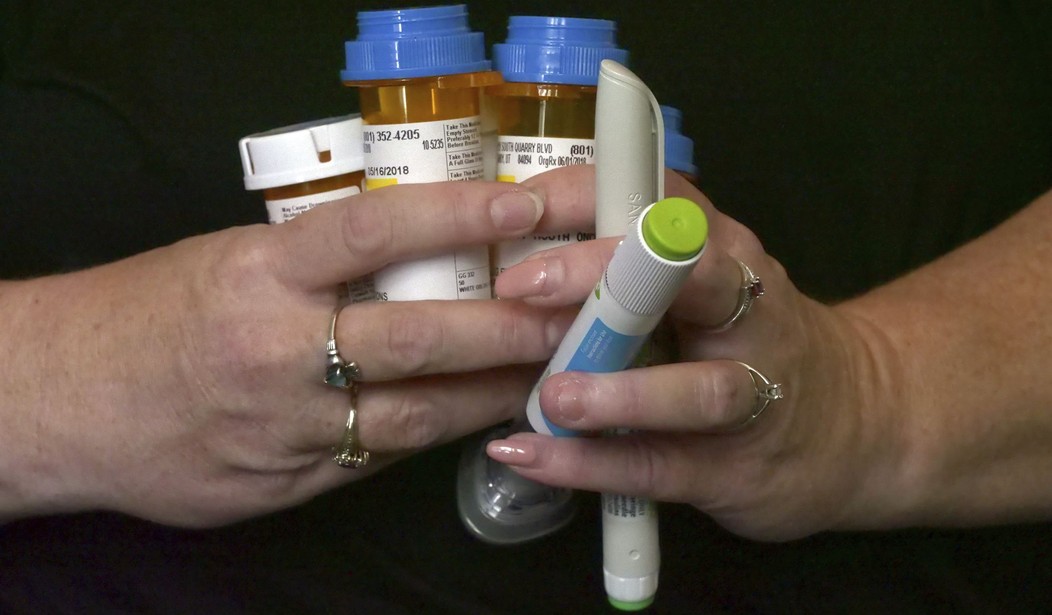The conventional wisdom coming out of the 2018 midterm elections is that President Trump is likely to be aggressively “checked” by the incoming Democratic House of Representatives. And, to some extent, that is clearly true, in view of the oncoming flood of investigations and possibly impeachment hearings for Trump and others. If nothing else, such actions are likely to prove a nuisance for the president, as well as a potential quagmire that could slow down his administration’s actions on any number of fronts.
However, while Democrats are likely to try to tie Trump’s hands in any number of other areas, there is one area where their election may actually give him more leeway to pursue his agenda. I speak of Trump’s potential battle with the pharmaceutical industry.
Firstly, recall that President Trump is no fan of Big Pharma, and hasn’t been since he ran for president in the first place. On the stump, candidate Trump accused the industry of “getting away with murder.” Nor are they fans of his – the industry donated more to Hillary Clinton’s presidential campaign than to all other candidates. Since taking office, moreover, Trump has struck an antagonistic note in dealing with the industry, and has appointed officials – like Food and Drug Administration (FDA) head Scott Gottlieb and Health and Human Services (HHS) Secretary Alex Azar – who have committed to getting tough on Pharma. And in many ways, they have, most notably via Trump and Azar’s decision to weaponize Medicare negotiations against the industry, and via Trump’s orders to now-retired Attorney General Jeff Sessions to sue the industry for its role in the opioid crisis.
However, one major problem stood in the way of Trump’s justified fury against pharma: namely, that much of the Republican congress remained in thrall to the industry, either through its money, or through its attempt to frame its shameless monopolistic power grabs as part of the free market (this is, by definition, false). And, while Pharma has its share of defenders among Democrats (including Cory “Spartacus” Booker), the recent elections proved an ancient rule of politics true: namely, that politicians like money a lot, but they like power more. Hence, the incoming Democratic House caucus owes its position as much to its campaigning against high drug prices and the opioid epidemic – both products of Pharma’s malfeasance – as it does to suburban discontent with the president. Certainly, concerns over healthcare were what kept otherwise deeply embattled Democratic senators such as Joe Manchin (D-WV) and Jon Tester (R-MT) in place. Small wonder that Senate Majority Leader Mitch McConnell (R-KY) has suddenly also become very interested in reining in drug prices.
Recommended
That this represents a problem for Pharma is obvious. And the industry knows it. In one of the more satisfying stories to emerge since the election, the Washington Examiner has noted that the potential for a Pelosi-Trump-McConnell alliance on tackling drug prices has the industry “sweating bullets” and suddenly finding that all their money and influence has vanished in the Capitol, now that everyone realizes that siding with the industry can make the difference between election and failure. Given that Washington, until recently, abided by the catchphrase “Pharma always wins,” this is a welcome reversal for those who want a drug policy that works for the normal Americans that make up Trump’s base, rather than the donor class.
Let’s be clear: if Pelosi, Trump, and McConnell can hammer out legislation that addresses the high drug pricing and opioid epidemics, it will mark one of the most consequential achievements for all three people. Indeed, it may be that these problems can only be solved by an eclectic mix of leaders such as those three. It’s too soon to say what such legislation would look like, but one suspects a combination of genuine free market remedies such as opening up the market for generic drugs and cracking down on drug company patent abuse, as well as previously liberal ideas such as Medicare negotiating prices, could all be involved.
In short, yes, President Trump may face a bench of political opponents that are empowered, but those people share an enemy with him who arguably did more to get them elected than he did. And older than the adage that Pharma always wins is a much more comforting line: the enemy of my enemy is my friend.

























Join the conversation as a VIP Member